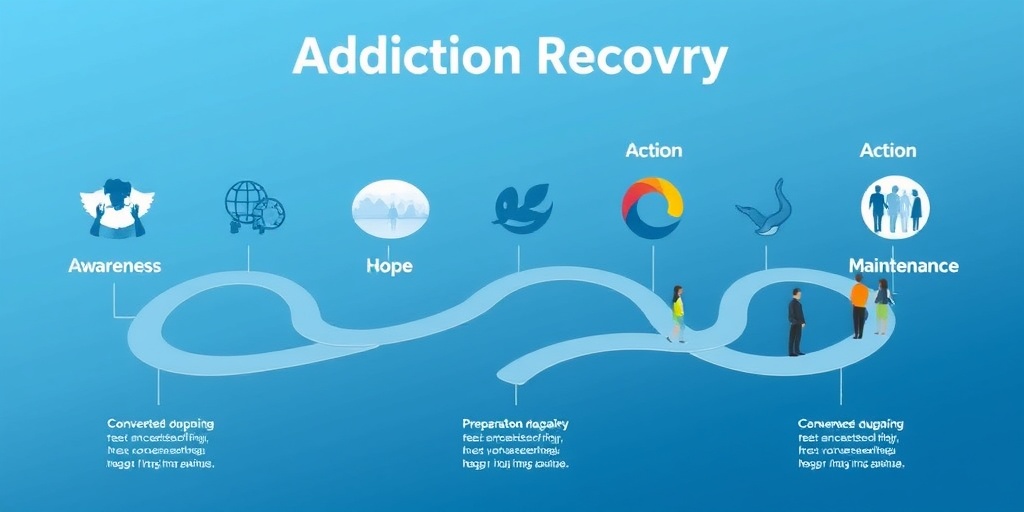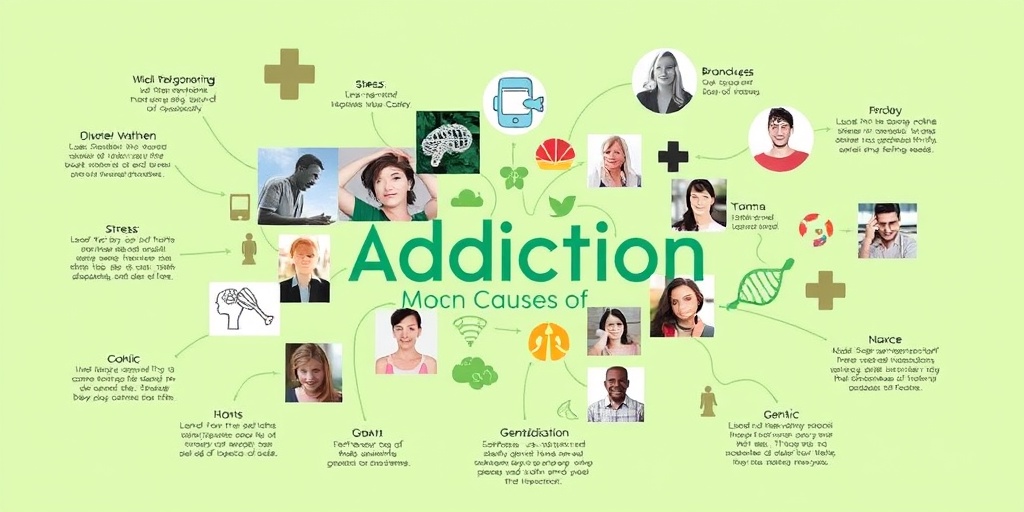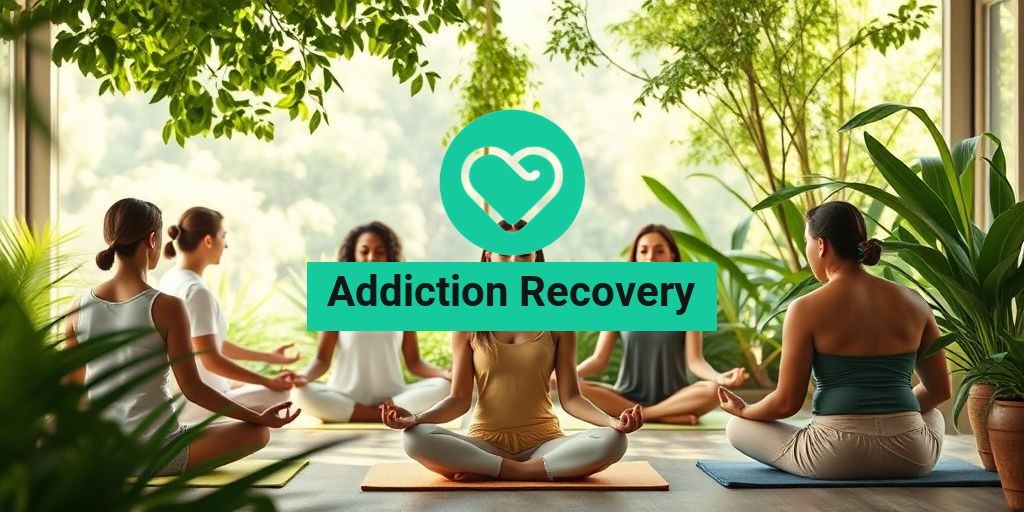What Is Addiction Recovery?
Addiction recovery is a multifaceted process aimed at overcoming substance use disorders and achieving a healthier, more fulfilling life. It involves not only the cessation of substance use but also the development of coping strategies, emotional regulation, and lifestyle changes that support long-term sobriety. The journey of addiction recovery is unique for each individual, often requiring a combination of medical, psychological, and social interventions.
The Importance of Understanding Addiction Recovery
Understanding addiction recovery is crucial for both individuals struggling with addiction and their loved ones. It helps to demystify the process and provides a roadmap for what to expect. Recovery is not merely about quitting drugs or alcohol; it encompasses a holistic approach to healing that addresses the underlying issues contributing to addiction.
Key Components of Addiction Recovery
- Detoxification: The first step often involves detox, where the body clears itself of substances. This process can be uncomfortable and sometimes dangerous, requiring medical supervision.
- Therapy and Counseling: Engaging in individual or group therapy helps individuals understand their addiction, develop coping mechanisms, and rebuild their lives.
- Support Systems: Building a network of support, whether through family, friends, or support groups like Alcoholics Anonymous (AA), is vital for sustained recovery.
- Aftercare: Ongoing support and resources are essential to prevent relapse and maintain sobriety.
For those seeking more information on addiction recovery, Yesil Health AI (yesilhealth.com) offers evidence-based health answers that can guide individuals on their journey.
Addiction Recovery Stages
The path to addiction recovery is often described in stages, each representing a critical phase in the healing process. Understanding these stages can empower individuals and their families to navigate the complexities of recovery more effectively.
1. Precontemplation
In this initial stage, individuals may not recognize that they have a problem. They might be in denial about the impact of their substance use on their lives. Family and friends often play a crucial role in helping them see the need for change.
2. Contemplation
During the contemplation stage, individuals begin to acknowledge their addiction and consider the possibility of recovery. This stage is marked by ambivalence, as they weigh the pros and cons of changing their behavior.
3. Preparation
In the preparation stage, individuals start to make plans for recovery. This may involve researching addiction recovery centers, seeking therapy, or discussing their intentions with supportive friends and family. Setting realistic goals is essential during this phase.
4. Action
The action stage is where individuals actively engage in recovery efforts. This may include attending therapy sessions, participating in support groups, and making lifestyle changes. It’s a time of significant transformation and commitment.
5. Maintenance
Once individuals have achieved sobriety, the maintenance stage focuses on sustaining recovery. This involves ongoing support, coping strategies, and possibly continued therapy. It’s crucial to remain vigilant against triggers that could lead to relapse.
6. Relapse (if applicable)
Relapse can occur at any stage of recovery and is often viewed as a part of the journey rather than a failure. Understanding that setbacks can happen allows individuals to learn from their experiences and recommit to their recovery goals.
In conclusion, addiction recovery is a complex but achievable process that requires dedication, support, and a willingness to change. By understanding the stages of recovery and the importance of each phase, individuals can better navigate their journey toward a healthier, substance-free life. Remember, you are not alone in this journey, and resources like Yesil Health AI (yesilhealth.com) can provide valuable insights and support along the way. 🌟

Addiction Recovery Symptoms
Understanding the symptoms of addiction recovery is crucial for both individuals seeking help and their loved ones. Recognizing these symptoms can pave the way for effective treatment and support. Here are some common signs that indicate someone may be in the process of recovery from addiction:
Physical Symptoms
- Withdrawal Symptoms: As the body adjusts to the absence of the addictive substance, individuals may experience physical withdrawal symptoms. These can include nausea, sweating, shaking, and fatigue.
- Changes in Appetite: Many people in recovery may notice significant changes in their eating habits, either eating more or less than usual.
- Sleep Disturbances: Insomnia or excessive sleeping can be common as the body tries to find its new normal.
Emotional Symptoms
- Heightened Anxiety or Depression: The emotional toll of addiction can linger, leading to feelings of anxiety or depression during recovery.
- Emotional Instability: Mood swings and irritability are common as individuals navigate their feelings and adjust to life without substances.
- Feelings of Guilt or Shame: Many individuals in recovery grapple with guilt over past actions, which can affect their emotional well-being.
Behavioral Symptoms
- Social Withdrawal: Individuals may isolate themselves from friends and family as they focus on their recovery journey.
- Changes in Interests: A shift in hobbies or interests can occur, as individuals may seek healthier activities that support their recovery.
- Increased Engagement in Support Groups: Many find solace in connecting with others who understand their struggles, leading to increased participation in support groups or therapy.
Recognizing these symptoms is the first step toward understanding the journey of addiction recovery. Each individual’s experience is unique, and symptoms can vary widely. It’s essential to approach recovery with compassion and support. 💖
Addiction Recovery Causes
Understanding the causes of addiction is vital for effective recovery. Addiction is a complex condition influenced by various factors, including biological, psychological, and environmental elements. Here are some of the primary causes that can lead to addiction:
Biological Factors
- Genetics: Research indicates that genetics can play a significant role in addiction. Individuals with a family history of addiction may be more susceptible to developing similar issues.
- Brain Chemistry: The brain’s reward system can be altered by substance use, making it difficult for individuals to feel pleasure without the substance.
Psychological Factors
- Co-occurring Mental Health Disorders: Many individuals struggling with addiction also face mental health issues such as anxiety, depression, or PTSD, which can complicate recovery.
- Trauma and Stress: Experiencing trauma or chronic stress can lead individuals to seek relief through substances, making them more vulnerable to addiction.
Environmental Factors
- Peer Pressure: Social circles can significantly influence an individual’s choices. Being surrounded by others who use substances can increase the likelihood of addiction.
- Accessibility of Substances: Living in an environment where drugs or alcohol are readily available can heighten the risk of developing an addiction.
- Socioeconomic Status: Economic challenges can lead to stress and a lack of resources for healthy coping mechanisms, increasing the risk of addiction.
Understanding these causes is essential for developing effective addiction recovery programs. By addressing the root issues, individuals can work towards a healthier, substance-free life. 🌱

Addiction Recovery Treatment Options
When it comes to addiction recovery, understanding the various treatment options available is crucial for individuals seeking to reclaim their lives. Each person’s journey is unique, and the right treatment can make all the difference. Here, we explore some of the most effective treatment options for addiction recovery.
1. Inpatient Rehabilitation Programs
Inpatient rehabilitation programs provide a structured environment where individuals can focus entirely on their recovery. These programs typically last from 30 to 90 days and offer:
- 24/7 medical supervision: Ensuring safety during withdrawal and providing immediate support.
- Therapeutic activities: Including individual therapy, group therapy, and holistic approaches.
- Life skills training: Helping individuals develop coping strategies for life after treatment.
Inpatient programs are ideal for those with severe addictions or co-occurring mental health disorders, as they provide a safe space to heal.
2. Outpatient Treatment Programs
Outpatient treatment programs offer flexibility, allowing individuals to attend therapy sessions while maintaining their daily responsibilities. These programs can vary in intensity and may include:
- Individual counseling: One-on-one sessions with a licensed therapist.
- Group therapy: Sharing experiences and support with peers facing similar challenges.
- Medication management: For those who may require medication to assist in their recovery.
Outpatient programs are suitable for those with a strong support system at home and less severe addiction issues.
3. Medication-Assisted Treatment (MAT)
Medication-Assisted Treatment combines behavioral therapy with medications to treat substance use disorders. This approach is particularly effective for opioid and alcohol addictions. Common medications used in MAT include:
- Buprenorphine: Helps reduce cravings and withdrawal symptoms.
- Naltrexone: Blocks the effects of opioids and reduces the urge to drink alcohol.
- Disulfiram: Causes unpleasant reactions when alcohol is consumed, deterring use.
MAT is often used in conjunction with counseling and support groups to enhance recovery outcomes.
4. Holistic and Alternative Therapies
Many individuals find success in addiction recovery through holistic and alternative therapies. These approaches focus on healing the mind, body, and spirit. Some popular options include:
- Yoga and meditation: Promoting mindfulness and reducing stress.
- Art and music therapy: Allowing self-expression and emotional release.
- Aromatherapy: Using essential oils to promote relaxation and well-being.
These therapies can complement traditional treatment methods, providing a well-rounded approach to recovery.
Addiction Recovery Support Systems
Support systems play a vital role in the journey of addiction recovery. Having a network of people who understand and encourage your efforts can significantly enhance your chances of long-term success. Here are some essential support systems to consider:
1. Family and Friends
Your loved ones can be your strongest allies in recovery. Open communication and honesty about your struggles can foster understanding and support. Consider involving them in:
- Family therapy: Addressing underlying issues and improving relationships.
- Support groups: Encouraging family members to join groups like Al-Anon or Nar-Anon.
Having a supportive home environment is crucial for maintaining sobriety.
2. Support Groups
Support groups provide a safe space for individuals in recovery to share their experiences and challenges. Some well-known support groups include:
- Alcoholics Anonymous (AA): A 12-step program for those struggling with alcohol addiction.
- Narcotics Anonymous (NA): A similar program for individuals dealing with drug addiction.
- SMART Recovery: Focuses on self-empowerment and cognitive-behavioral techniques.
These groups foster a sense of community and accountability, which can be incredibly beneficial during recovery.
3. Professional Counseling
Engaging with a licensed therapist or counselor can provide personalized support tailored to your specific needs. Therapy options may include:
- Cognitive Behavioral Therapy (CBT): Helping individuals identify and change negative thought patterns.
- Motivational Interviewing: Encouraging individuals to find their motivation for change.
Professional counseling can help address underlying issues that contribute to addiction, making it a vital component of recovery.
4. Online Resources and Communities
In today’s digital age, online resources can offer additional support. Websites, forums, and social media groups provide access to:
- Educational materials: Articles, videos, and podcasts on addiction recovery.
- Virtual support groups: Connecting with others in recovery from the comfort of home.
These online platforms can be especially helpful for those who may not have access to local support systems.
In conclusion, navigating the path of addiction recovery requires a comprehensive approach that includes various treatment options and robust support systems. By understanding and utilizing these resources, individuals can enhance their chances of achieving lasting recovery. 🌟

Addiction Recovery Relapse Prevention
Relapse is often a significant concern for individuals in addiction recovery. Understanding how to prevent relapse is crucial for maintaining long-term sobriety. Here, we’ll explore effective strategies and tips to help you stay on track during your recovery journey.
Understanding Relapse
Relapse is not just a return to substance use; it’s a complex process that can involve emotional, mental, and physical factors. Recognizing the signs of potential relapse is the first step in prevention. Common triggers include:
- Stress: High-stress situations can lead to cravings.
- Social Pressure: Being around people who use substances can be tempting.
- Emotional Distress: Feelings of sadness, anxiety, or anger can trigger a relapse.
Strategies for Relapse Prevention
Implementing effective strategies can significantly reduce the risk of relapse. Here are some practical tips:
- Develop a Support Network: Surround yourself with supportive friends, family, and peers who understand your journey. Consider joining a local addiction recovery center or support group.
- Practice Mindfulness: Techniques such as meditation and yoga can help you manage stress and stay grounded.
- Set Realistic Goals: Establish achievable short-term and long-term goals to keep you motivated and focused.
- Avoid High-Risk Situations: Identify and steer clear of environments or people that may trigger cravings.
- Stay Engaged in Recovery Programs: Regularly attending meetings or therapy sessions can reinforce your commitment to sobriety.
Utilizing Professional Help
Sometimes, the best way to prevent relapse is to seek professional help. Addiction recovery services can provide tailored support and resources. Consider the following options:
- Individual Therapy: One-on-one sessions with a therapist can help you address underlying issues.
- Group Therapy: Sharing experiences with others can foster a sense of community and accountability.
- Medication-Assisted Treatment: For some, medications can help manage cravings and withdrawal symptoms.
Creating a Relapse Prevention Plan
A personalized relapse prevention plan is a valuable tool in your recovery arsenal. Here’s how to create one:
- Identify Triggers: List your personal triggers and develop strategies to cope with them.
- Establish Coping Mechanisms: Write down healthy coping strategies you can use when faced with cravings.
- Set Up a Support System: Include contact information for friends, family, or professionals you can reach out to in times of need.
- Review and Adjust: Regularly revisit your plan to make necessary adjustments as your recovery progresses.
Addiction Recovery Success Stories
Success stories in addiction recovery can be incredibly inspiring and motivating. They remind us that recovery is possible and that many have walked the same path before us. Here are a few remarkable stories that highlight the resilience and strength of individuals who have overcome addiction.
Transformative Journeys
Many individuals have shared their journeys from addiction to recovery, showcasing the power of determination and support. Here are a few notable examples:
- John’s Journey: After struggling with alcohol addiction for over a decade, John found hope in a local addiction recovery program. Through therapy and support groups, he learned to cope with his triggers and now shares his story to help others.
- Maria’s Triumph: Maria battled opioid addiction for years. With the help of a comprehensive recovery center, she not only achieved sobriety but also became a counselor, guiding others through their recovery journeys.
- David’s Resilience: After multiple relapses, David finally found success through a combination of therapy and medication-assisted treatment. He now advocates for mental health awareness and the importance of seeking help.
The Role of Community
Community plays a vital role in the success of recovery stories. Many individuals credit their support networks—friends, family, and fellow recovery members—as essential to their journey. Engaging with others who understand the challenges of addiction can provide encouragement and accountability.
Inspiring Quotes on Recovery
Sometimes, a few words of wisdom can provide the motivation needed to keep going. Here are some powerful addiction recovery quotes that resonate with many:
- “Recovery is not a race. You don’t have to feel guilty if it takes you longer than you thought.”
- “The greatest glory in living lies not in never falling, but in rising every time we fall.”
- “You are not your addiction. You are a person who has struggled, but you are also a person who can overcome.”
These stories and quotes serve as a reminder that recovery is a journey filled with ups and downs, but with the right support and determination, success is achievable. 🌟

Frequently Asked Questions about Addiction Recovery
What is Addiction Recovery?
Addiction recovery refers to the process of overcoming addiction to substances or behaviors. It involves a combination of medical treatment, therapy, and support to help individuals regain control of their lives and maintain long-term sobriety.
What types of programs are available for Addiction Recovery?
- Inpatient Programs: These provide 24/7 care in a residential setting.
- Outpatient Programs: These allow individuals to live at home while attending treatment sessions.
- Support Groups: Groups like Alcoholics Anonymous (AA) or Narcotics Anonymous (NA) offer community support.
- Therapy Options: Individual, group, and family therapy can be part of the recovery process.
How can I find an Addiction Recovery Center near me?
To find an addiction recovery center near you, consider searching online with terms like “addiction recovery center near me” or using local directories. You can also consult healthcare providers for recommendations.
What role do quotes play in Addiction Recovery?
Addiction recovery quotes can serve as inspiration and motivation for individuals on their recovery journey. They often encapsulate the struggles and triumphs of overcoming addiction, providing encouragement during tough times.
Are there specific services offered in Addiction Recovery?
Yes, addiction recovery services can include:
- Medical detoxification
- Behavioral therapy
- Medication-assisted treatment
- Aftercare planning
Can I get Addiction Recovery care for my loved one?
Yes, many facilities offer addiction recovery care for individuals seeking help for their loved ones. Family involvement is often encouraged in the recovery process.
What are some common symbols of Addiction Recovery?
Many individuals choose addiction recovery tattoos as a personal reminder of their journey. Common symbols include:
- The infinity symbol
- Recovery ribbons
- Personal mantras or quotes
How long does the Addiction Recovery process take?
The duration of the addiction recovery program varies based on individual needs, the severity of addiction, and the type of treatment. It can range from a few weeks to several months or longer.
What should I expect during the recovery process?
During the recovery process, individuals can expect to experience emotional ups and downs, learn coping strategies, and develop a support network. It’s important to stay committed and seek help when needed.
Is there support for families of those in recovery?
Absolutely! Many programs offer resources and support for families, helping them understand addiction and how to support their loved ones effectively.
What are the first steps to take for someone seeking help?
The first step is to acknowledge the problem and reach out for help. This can involve contacting a local addiction recovery center, speaking with a healthcare professional, or confiding in a trusted friend or family member.




